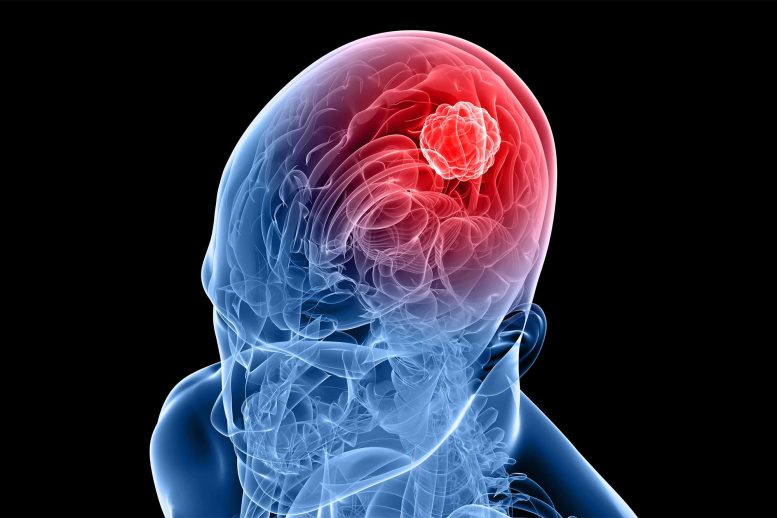
Yale researchers have discovered a subset of non-small cell lung cancer (NSCLC) patients with a rare genetic mutation who are experiencing significantly extended lifespans compared to those without the mutation.
A new study from Yale University reveals that patients with the rare ALK mutation are living an average of four years, compared to typical patients who die of NSCLC within seven months.
Most patients with non-small cell lung cancer (NSCLC) that has metastasized to the brain have a dire prognosis. But Yale researchers have identified a subset of those patients with a rare genetic mutation who are living significantly longer than patients without the mutation.
The findings were published this month in the Journal of Clinical Oncology and will be presented Monday, October 19 at the 2015 Annual Meeting of the American Society for Radiation Oncology.
NSCLC accounts for 85% of all lung cancers, with 30%–50% of patients developing metastatic disease to the brain. Typically, patients with this diagnosis die of the disease within seven months. However, patients with the rare ALK mutation, which is found in just 5% of NSCLC cases, are living an average of four years, with the disease controlled in the brain nearly a year after their initial treatment, said the study’s lead author Dr. Kimberly Johung, assistant professor of therapeutic radiology.
“This study is among the first to show that genetic information about tumors can guide decision making for the treatment of brain metastases,” Johung said. “Patients with the ALK mutation respond so well to targeted systemic treatments that the brain lesions actually become the driving prognostic factor in their treatment plan.”
Treatment approaches include whole-brain radiation therapy, radiation for individual lesions, and surgery, typically for a single metastasis. Since whole-brain radiation is associated with significant cognitive effects and the use of additional radiation therapy for progression is common in this population, the Yale researchers suspect that patients with the ALK mutation would benefit from radiation focused on individual metastases.
“Since patients are living longer with systemic disease controlled, there is likely a benefit to intensifying treatment of their brain lesions. This is a significant change in strategy for this population,” Johung said.
Reference: “Extended Survival and Prognostic Factors for Patients With ALK-Rearranged Non–Small-Cell Lung Cancer and Brain Metastasis” by Kimberly L. Johung, Norman Yeh, Neil B. Desai, Terence M. Williams, Tim Lautenschlaeger, Nils D. ArvoldMatthew S. Ning, Albert Attia, Christine M. Lovly, Sarah Goldberg, Kathryn Beal, James B. Yu, Brian D. Kavanagh, Veronica L. Chiang, D. Ross Camidge and Joseph N. Contessa, 2015, Journal of Clinical Oncology.
DOI: 10.1200/JCO.2015.62.0138









Metastasis of cancer cells in any part of the brain is finally transported to the brain,it seems, but at different rates, brain being the last victim of such metastasis. In most cases, even before the cancer spreads to the brain, the patient dies due to its spreading elsewhere which are also important organs. Brain blood barrier may be contributing to the delay in acquiring the disease. We should also statistically ascertain number of brain tumour cases compared to other forms of cancer in mankind. These things apart, we should try to identify all the carcinogenic agents, which are responsible for any mutation of DNA, and try to avoid these carefully. Finally, aging is the final one which contributes for cancer because of copying mistakes which DNA makes over large number of replications as we age, for which we cannot do anything now. We should try to end early onset of cancer only in the Mankind. Thank YOu.